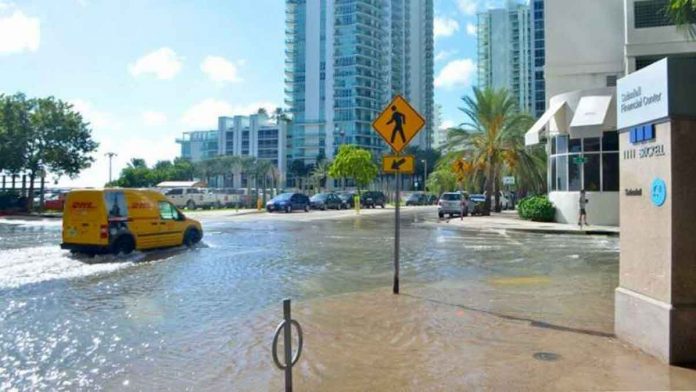Researchers at the University of Miami’s (UM) Rosenstiel School of Marine, Atmospheric, and Earth Science discovered that Miami’s history of environmental injustice was the key to understanding why different groups were frequently speaking at cross-purposes, leading to misunderstandings and disagreements about climate change and what should be done about it.
“These findings are of particular interest as local governments begin to respond to climate pressures,” said Rosalind Donald, a postdoctoral associate in the Department of Environmental Science and Policy at the UM Rosenstiel School. “While climate change is frequently discussed in policy circles in scientific terms, the participants in our study were concerned with its broader societal context.”
Donald and his team were able to analyse Miami’s climate debate and the histories that inform it by weaving together information from interviews, archival documents (ranging from planning documents to personal papers), and policy document analysis.
From the dispossession of the Seminole and Miccosukee tribes to the destruction of Miami’s then-largest Black community, Overtown, to make way for the I-95 Expressway, the city’s history of growth through real estate development and racial segregation has created a fractured climate debate in which people experience different climate impacts.
Shorefront areas, for example, are more likely to be populated by a wealthier demographic, making them more likely to experience coastal flooding due to sea-level rise and linking it to climate change. Due to segregation and displacement, many Black communities in the interior are located on higher ground. These areas are under increasing gentrification pressure, possibly because they are less vulnerable to sea-level rise—a theory known as climate gentrification. As a result, some residents associated climate change with gentrification.
Their research discovered that different perspectives on climate change are rooted in community histories, such as experiences of privilege or dispossession.
“Research and the media frequently attribute differences in opinion about climate change to political differences,” Donald explained. “Our research shows that climate change is personal to all of us, not just deniers and believers.”
This meant that science-based climate communication could even be alienating in some communities, whereas discussing climate change in the context of gentrification and other pressing concerns was more concrete. Residents in another community, a wealthy Miami Beach neighbourhood, were well-versed in climate science but still rejected measures to address sea level rise because they feared it would harm their property values and quality of life.
“It has divided the city into those who have benefited from this growth and those whose communities have subsidized the health, wealth, and environmental quality of others while not reaping the benefits of growth,” Donald explained.
The study, titled “The role of local narratives in emerging climate governance,” was published in the journal Environmental Research: Climate on July 12, 2022.

